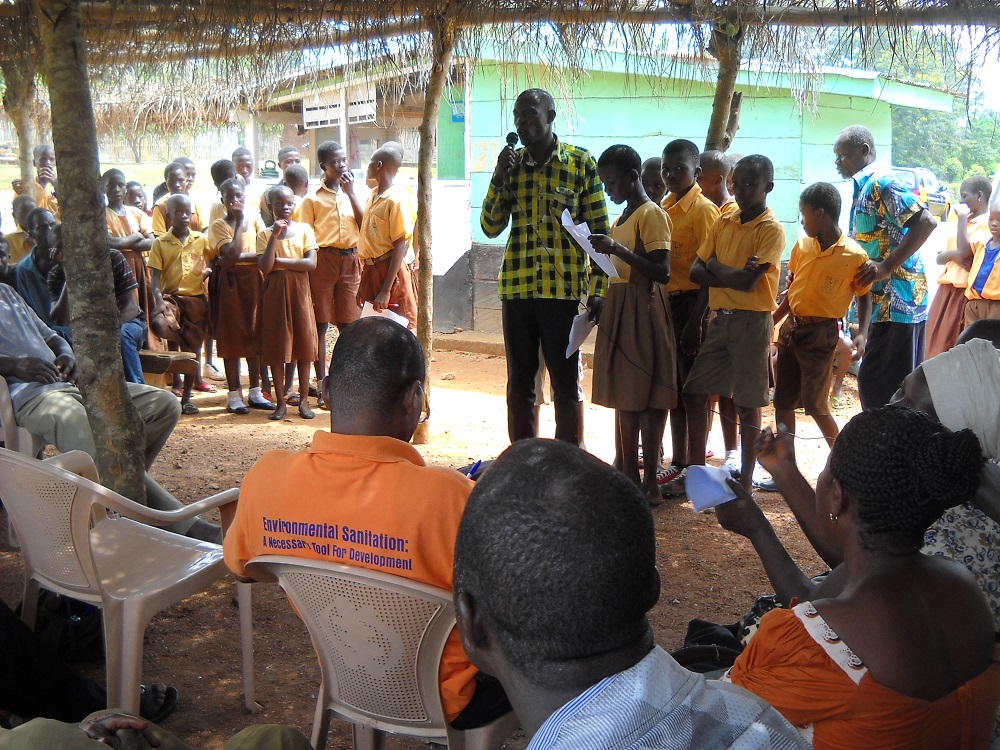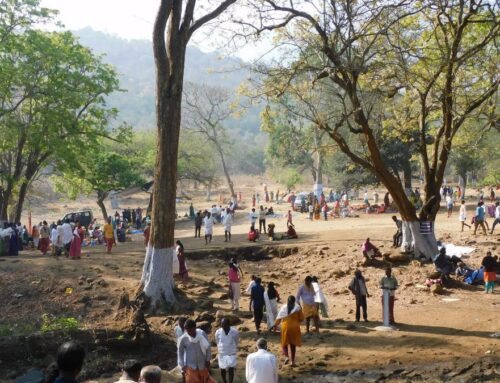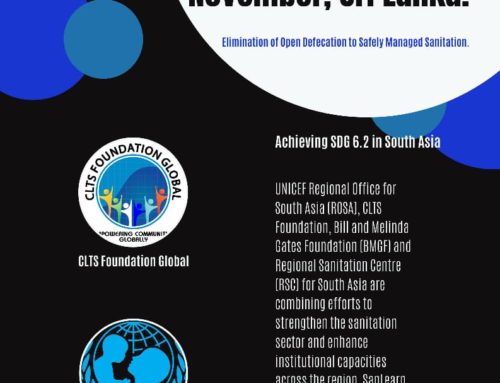Ghana is one of the first countries in the West and Central Africa region to introduce Community-led Total Sanitation (CLTS. The approach is being implemented in Ghana since 2007 with positive results, indicating its effectiveness in the Ghanaian context. Scaling up of the CLTS approach, however, has been slow and limited to certain areas/pockets, due to various reasons, the most prominent of which is ‘poor quality of facilitation’.

A female natural leader of an ODF community tells her community’s success story to the members of a non-ODF community. She also displayed the ODF tree the women of their community prepared by drawing many fruits as positive impact of being ODF
To address this shortcoming, UNICEF Ghana, invited Dr. Kamal Kar, the pioneer of CLTS and the Chairman of the CLTS Foundation, in 2011, to undertake a review of practice of CLTS in Ghana on the ground and based on the findings conduct a training of trainers and facilitators. In a three-week period, Dr. Kar facilitated two hands-on training workshops on CLTS in Dodowa and Elmina, as well as four half-day / one day workshops in Accra and Tamale, where he shared his findings from the field and sensitized senior government decision-makers, Ministers, NGO and INGO staff. The two training workshops built the capacity of 123 facilitators and 40 master trainers at the national and regional levels. Further, the combination of CLTS piloting and its tremendous potential and applicability in Ghana resulted in the ‘political buy-in’ of the approach, which ultimately led to the adoption of the CLTS approach in the revised “Environmental Sanitation Policy” (2010) of the Ministry of Local Government and Rural Development, providing the necessary policy framework for scaling up.





Leave A Comment